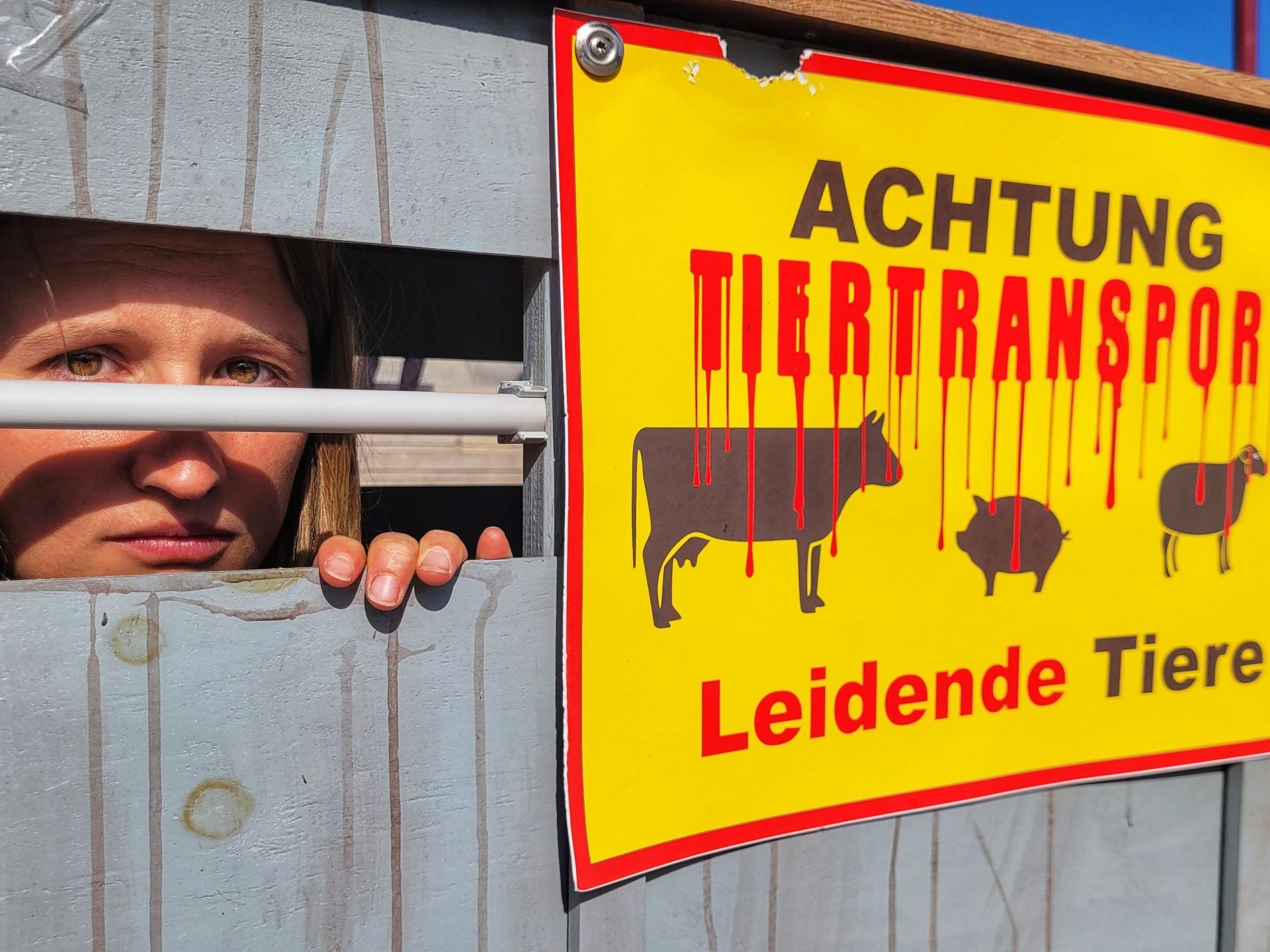"It won't be pleasant": Activist spends 29 hours in animal transporter in Vienna

An animal rights activist dressed as a cow will spend a total of 29 hours without food and drink in a mini animal transporter in front of the Parliament in Vienna until tomorrow, Thursday, 2 PM. The action started today at 9 AM. The reason for the action is the revision of the regulations on animal transport at the EU level.
The currently valid EU animal transport regulation 1/2005 (EU-TTVO) provides for a maximum transport duration of 29 hours for cattle, sheep, and goats, with a one-hour rest and supply break. Only then must the animals be unloaded and cared for for at least 24 hours. Subsequently, they may be transported again for 29 hours.
Maximum Transport Duration for Animal Transports Hardly Adhered To
In practice, even these exorbitantly long transport times for the animals are sometimes exceeded, and the animals are neither cared for during the journey nor during the one-hour rest break. Days-long animal transports to distant destinations outside Europe are not uncommon. Last year, the ASSOCIATION AGAINST FACTORY FARMS uncovered a 4-day transport of pregnant Austrian heifers to Turkey over almost 2,500 kilometers. Although it has been mandatory in Austria since July 1 that weaned cattle on long-distance transports must have unrestricted access to water, it is still unclear whether this is being adhered to.
New Regulation Proposal Sets 21 Hours as Limit
The EU-TTVO is over 20 years old and has long been outdated by scientific standards. Numerous scandals and tragedies in the transport of animals have been uncovered by various animal welfare organizations. Animal welfare concerns are increasingly important to many citizens. Therefore, in December 2023, the EU Commission presented a proposal for a new regulation to protect animals during transport. This proposes 21 hours as the maximum transport time. However, there are numerous amendments from right-wing and conservative parties that nullify any improvements for the animals and even propose worse conditions than currently apply.
Symptoms of Dehydration Appear Much Earlier in Animals
In a 2022 report by the European Food Safety Authority (EFSA) on the welfare of cattle during transport, it is stated that physiological changes indicative of thirst were observed after just nine hours of transport, and after twelve hours, changes indicative of hunger were noted. Additionally, the transport time should be minimized. The new EU animal transport regulation should, for animal welfare reasons, allow a maximum of 8 hours of transport time for weaned animals.
Activist in Front of Parliament in Vienna: "I Hope to Better Empathize with Our Fellow Creatures"
Animal rights activist Isabell Eckl from VGT: "Time and again, we document, sometimes for days, animal transporters across Europe and observe that rest periods are not adhered to and animals are not cared for. However, I could not imagine what it feels like to spend 29 hours in a cramped trailer without water and food. I hope that through this action, I can better empathize with our fellow creatures, so I can report on this experience afterward. It certainly will not be pleasant."
During the action in front of the parliament, a doctor will continuously monitor the health condition of the activist, as symptoms of dehydration can appear after just a few hours of fluid deprivation.
(Red)
This article has been automatically translated, read the original article here.










